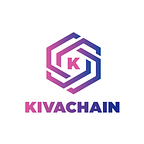The word consensus in Blockchain is very familiar to many. Basically, consensus algorithm is a procedure where all the peers in the Blockchain network reach an agreement on present state of distributed ledger. In a simpler way to explain, it has to ensure all agents in a system agree on one source of truth to create reliability in the Blockchain network and trust among unknown peers in a distributed network.
In addition, the role of consensus is also to select validators. Once they are chosen, they start to verify transaction data and keep the account in order to broadcast new accounts to other nodes in the network and obtain the approval of the new accounts from other nodes.
Taking advantage of consensus algorithms, DPoS is an example of the implementation of consensus algorithms in Kivachain Network.
What is Delegated Proof of stake (DPoS) ?
Working as an alternative to Proof of Work consensus algorithm, Delegated Proof of Stake consensus algorithm is a voting system operated based on delegates reputation. Generally, the DPoS consensus chooses nodes as validators in the blockchain system based on the amount of votes they receive.
When blockchain system operates, a certain amount of tokens will be issued and given to nodes in the blockchain system. A node can then apply to be a validator candidate with a portion of tokens. Other nodes with tokens can therefore vote for the candidates. The cycle begins when after a T period, votes for all candidates will be counted. Top N candidate nodes with the most votes will become validators and after another T period, the votes will be counted again, select new validators and repeat.
Most noticeable advantage of the Delegated Proof of stake consensus algorithm is to quickly manage and process a large amount of blockchain transactions. Moreover, DPOS blockchains are more scalable due to the low requirement in computational power. In addition, token holders in the network will have more power in deciding block producers and the energy it uses is environmentally friendly.
Kivachain Delegated Proof of Stake algorithm
In Kivachain blockchain system, Kivacoin will be issued and given to validators candidates in Kivachain. Chosen candidates will then become book-keeping (often called as validators in DPoS consensus). In Kivachain system, there will be a total of 33 validators which are also called Super Nodes (SR).
Book-keeping is a process of verifying transactions and recording them in the system and it is also called a block generating process. Blocks in Kivachain will be generated every 3 seconds and Kivachain set its Epoch up to 6 hours. The last 2 block time (6 seconds) of an Epoch will be Maintenance period and during this time, block generating order will be decided for the next Epoch.
Maintenance period will be having 2 block time and during this period, votes will be counted to choose validators. Normally, there will be a total of 4 maintenance periods in 24 hours along with the generation of 4 Epochs.
Kivachain brilliant design in Delegated Proof of Stake will bring a more democratic blockchain system that can perform a high volume of transactions in a short period of time, have a faster confirmation time and an energy efficient system. Kivachain Blockchain network promises to bring a whole new look and unexpected perspective to blockchain users that can benefit them in transparent, fast and low fee transactions.
